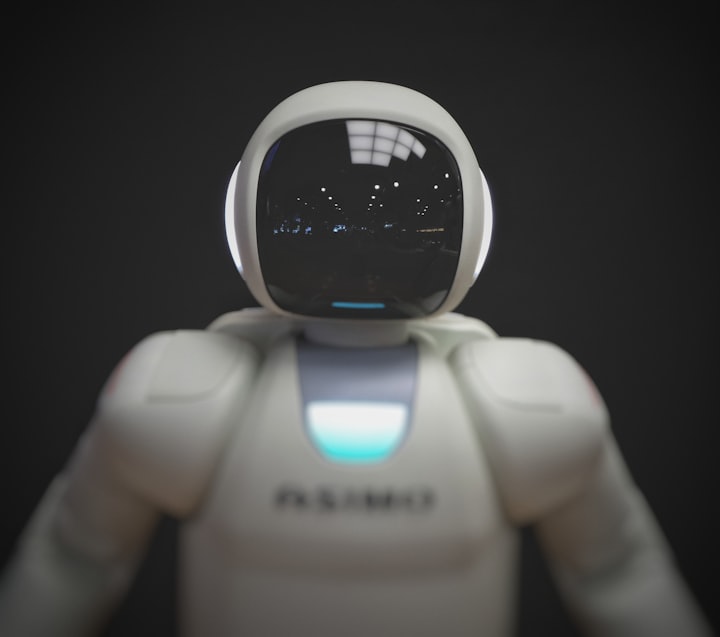
It is an undeniable fact that transhumanism and transhumanist idea is inevitable phenomena in the contemporary world. The term transhumanism offers hope for minimizing human limitations with the help of technological improvement and applications (Lockhart, 2013).
In fact, the idea of transhumanism has been endeavored since the Sumerian Epic of Gilgamesh according to influential philosopher Bostrom. People attempted to exterminate their inherent limitations such as some diseases, limited capacity, and even mortality which are the biggest obstacles that humankind struggle from the centuries with the help of observations and their limited knowledge. However, after the Renaissance which is the milestone of transhumanism because of scientific improvement and technological development, this idea becomes more applicable than ever before.
Nowadays, this idea is already part of our lives with organ donation, complex surgeries, and plenty of technological innovations that may be considered as evolving humankind as a transhuman whereas this kind of improvement is the only commencement of evolution from Homo sapiens to another unknown species. The reason is humankind still sticks into boundaries like mortality and limited capacity which are the significant limitations that scientists tried to eliminate them from human beings with biotechnology like gene selection, gene modification, and cryonics (Bostrom, 2005).
Advocates of transhumanism claim that this kind of applications and innovations will create a better society and future because of un-restrictedness. On the other hand, some people state that people need their limitations because exterminating limitations with technology may damage people in the long term. Hence, despite the common idea that limitations are the problems that must be solved with the help of transhumanist ideas, exterminate limitations which of two are being mortal or having the limited capacity by using transhumanist applications and technology has undeniable drawbacks and may cause negative impacts in the future.
Gene Selection
Firstly, although with the transhumanist applications people try to increase human capacity and capability with the gene selection, choosing the best genes for enhancement creates concerns in terms of identity problems, future concerns, and problems that the community may face with. The concept of gene selection is with different combinations of egg and sperm cells in the laboratory parents may have a chance to prefer which embryo will be their child. Furthermore, this technology not only uses for eliminating disease but also for choosing the best gene combination or in other words the best embryo (Metzl, 2016).
However, this application creates lots of ethical problems like violating human identity. The reason is the definition of best depends on the parent's point of view, there are no certain criteria for which one is the best. In our society, some jobs are accepted like having a better status and others not, but in every circumstance, there are some exceptions who have unexpected achievements. However, if parents choose their embryos in terms of IQ or mathematic skills which are accepted as significant qualities, they may destroy the potential of others which may better in the art.
According to Sparrow parents may tend to choose which genes accepted by the society if some genes are not fit with the societies norms, parents want to eliminate it to maximize child happiness whereas they also violate natural embryos autonomy and identity to do not give chance to live (cited in, Tennison,2012,p.407).
In that case, Sorgner claims that parents may struggle with a choice between random fertilization and genetic enhancement. Although most parents want to create a good starting point for their children, nobody should underestimate that parental decisions do not always produce effective results (Sorgner, 2015, p.34). That’s why deciding another individual’s way of living is a huge decision which may also have the potential to put a ban on how an individual’s life will be.
Another reason why people have concerns about increasing capacity with gene selection is unknown future possibilities that may cause negative effects such as parents to feel of obligation or losing diversity in society. The reason is this technology offers more brilliant or powerful generations which they may never reach with the random natural selection. These heavenly options may become an obligation for parents because adopting this technology into society help to produce more quality children which may increase competition in every area according to Tennison. In other words, because there will be more talented children with gene selection, natural babies may never reach their position in life like in the business area or educational life, so parents may feel obligated to produce their children with gene selection. Otherwise, their children start to live one step back and to prevent it people feel forced to utilize this technology whether they want or not because it is well known that the early bird catches the worm (Tennsion, 2012, p.407). Thus, because parents might tend to obligate to choose best genes which refer to preferential characteristic by society, diversity in society may extinct (Metzl, 2016).
The community may face with a monotype society not only for appearance but also for the quality as people design their children in terms of society’s preference. For instance, if mathematic skills are the significant desires of society, parents may not choose an embryo who has high artistic abilities, whereas it should not forget that to produce new ideas, we need various points of view. Therefore, although designing a baby may seem like a wonderful opportunity, there are lots of drawbacks like violating individuality, feeling of obligation, and because of that losing diversity.
Morality may not be a human limitation with technology.
The biggest limitation of human seen as being mortal by transhumanists, whereas finding a cure for death and being immortal not only harmful for the environment but also for humankind in terms of inequality in society.
The main reason why people have such environmental concerns is the less death in the world been, the more population will be. This means while people continue to proliferate as much as in today’s world because nobody is dying, the world population will increase simultaneously. As a consequence natural resources may not be enough to provide sufficient food, water, or even clean water. The reason is although human beings may live forever, they will still live on the same planet and such increasing requires a place to build houses, plants, and animals to consume as a food, but these natural resources even today in danger. This unreviewable resource may not be enough for all people in the world because once they consumed by people they cannot recycle again because people who consume them do not recycle in nature. The ecological cycle may be damaged, and the next generations may never see any animals or plants, or even they may never drink natural water either.
Thus, the exponential growth of the population in the world and inadequate resources can make the entire world like Africa. People may starve and the world becomes a desert because the damage is given to the planet. Another concern for the results of immortality is whether all people have the same chance to live forever or not. For instance, for cryopreservation, which is a technology that helped people to preserve their bodies after death, Knight asserts that “cryopreservation process cost range from $20,000 to over $120,000.” (Knight, 2008). Tennison argues that aiming immortality whit this kind of technology might be difficult to access for plenty of people as even today for some medical applications only can be afforded by wealthy ones.
Hence, it may be even harder to access the technology that provides immortality in the future while the vast majority of people cannot afford medical treatments today. He claims that because only wealthy and privileged ones utilize this technology, it only causes widening the gap between the reach and the poor (cited in, Tension, 2012, p.407). Therefore, although finding a cure for death seems a pleasant idea by the advocates of transhumanism, environmental problems, and ethical concerns cause harm rather than a benefit.
Conclusion
Advocates of transhumanism believe that transhumanism is the chance to do not bound by the natural limitations that human has, transhumanism provides a chance for living without boundaries. They claim that this idea offers a hope for more quality life that humankind had never had a chance before as without any limitations human beings may create a better society (Bostrom, 2005, p. 7). The reason is “creation of a superintelligence may be the last invention that man need ever make” (cited in Palk, 2015, p. 41). This means if people create more intelligence generations many limitations may be solved with using this mental power because this may be a way for creating new ideas more than in a natural way. People can produce such technology or machines that may not imagine with a regular IQ, so exterminating this limitation may be the chance for improvement for human kinds.
References
Bostrom, N. (2005). A history of transhumanist thought. Journal of Evolution and Technology, 14(1), 1-30
Isaacson, B. (2015). Silicon Valley Is Trying to Make Humans Immortal--and Finding Some Success; Billions of entrepreneurial dollars are being poured into solving humanity's death problem. Newsweek, (10).
Knight, C. (2008). A science without a deadline [cryonics]. Engineering And Technology, 3(19), 28-31. doi:10.1049/et:20081903Lockhart, L. A. (2013). Transhumanism. Salem Press Encyclopedia
MAJEROL, V., & Roberts, S. (2015). The Atom Bomb. New York Times Upfront, 147(10), 18.
Metzl, J. (2016). By The Year 2040 Embryo Selection Could Replace Sex As The Most Of Us Make Babies. Retrieved from http://www.kurzweilai.net/by-the-year-2040- embryo-selection-could-replace-sex-as-the-way-most-of-us-make-babies
Palk, A. C. (2015). The implausibility of appeals to human dignity: an investigation into the efficacy of notions of human dignity in the transhumanism debate. South African Journal Of Philosophy, 34(1), 39-54. doi:10.1080/02580136.2015.1010133
Sorgner, S. L. (2015). The Future of Education: Genetic Enhancement and Metahumanities. Journal Of Evolution & Technology, 25(1), 31-48.
Tennison, M. N. (2012). Moral Transhumanism: The Next Step. Journal Of Medicine & Philosophy, 37(4), 405-416.






Comments
There are no comments for this story
Be the first to respond and start the conversation.